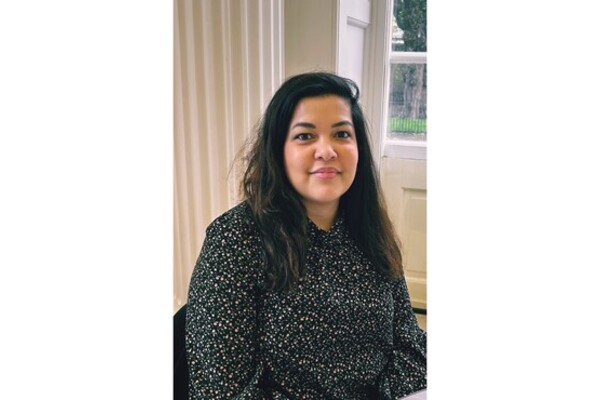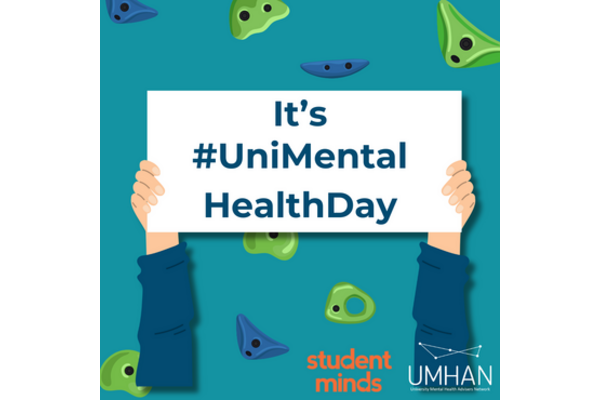Name
Jane Dye
Job title
Specialist Mental Health Mentor & ASC Mentor
Employer
Independent /Self-employed working through University of Plymouth and Plymouth College of Art.
How long have you worked in student mental health?
I have worked within student mental health for just over 10 years.
How long have you been in your current role?
I have been in my current role for 6 years.
Can you outline your career and how you got to where you are today?
Originally when I left school, I was a horse-riding instructress and trained students to gain British Horse Society teaching qualifications. Realising in my early twenties that this role was not going to provide financially, I entered the corporate business world. Starting as a part-time filing clerk I worked from the bottom up and after a few years I was being promoted into positions of responsibility and became a department manager.
My career within the business was very varied working in different departments and I bring many of the skills learnt within a business model to my practice as a ‘Route One’ Specialist Mental Health Mentor. One of the roles which most informs my practice in communications was as the manager of the training department where I was primarily responsible for a team of coaches/mentors and the management and training of sales agents; the main demographic of the staff were students working part time whilst studying at university, communication skills were key to success in this role, as well as understanding the lifestyle of students.
After 20 years of working in corporate management when the opportunity to take voluntary severance due to a company merger, I took it to enjoy a few years travelling worldwide. When I returned, I worked within local authority, supporting Social Workers and Occupational Therapists. This was very varied work and required very strong listening skills as clients were vulnerable and could at times be a very high risk. Following on from this role, I worked in the community within forensic support, working with a male client group between the ages of 18-70 who had learning difficulties and mental health co-morbidities. This was a complex and very high-risk client group to work with as the vast majority had sexually offending behaviours and had a community treatment order in place, but they were also very vulnerable and at times very unwell with their mental health. Whilst working with this client group I attained the Level 5 QCF Health and Social Care Management qualification. During the studies to achieve this qualification, I was introduced to the roles of NMH support in HE by the QCF assessor because of some of the personal attributes she observed in my work.
How does your experience and training help you to do your job well?
I started in university as a note taker then after a year I became an NMH Enhanced Enabler. This was the role I feel really provided me with the knowledge and experience for what I’m doing now. At that point students were given around 420 hours of DSA support a year. The enabler role consisted of a study assistant and a mentor combined. I would support highly anxious students in all areas of academia and mentor in respect of their mental health; giving me in-depth knowledge and understanding of the barriers students really face in academia. Whist doing this role I also attained the vocational PTTLS, Level 3 preparation to teach qualification giving basic understanding of pedagogy, the theory of practice and learning.
My training and background are influenced in some way by the varied career paths and life experiences that I have taken and had.
With my corporate background I am able to support students with career development. I look at their aspirations and work with them through their studies to work on CV building and professional communications skills and development. We’re not just looking at what’s going on immediately in academia, but what lies ahead. Using Gap Analysis (a business tool) I support students to review lecturer feedback and identify the gap in knowledge, which is then used to put together a plan to address these gaps, this strategy really helps towards managing assessment and exam anxiety.
Can you briefly explain your day-to-day responsibilities?
I manage a high case load of students with complex diagnoses. No day is ever the same. And working holistically makes the role varied.
I believe listening non-judgmentally is probably my greatest responsibility and providing a safe space for students to talk. Anxiety is not just caused by academia but through personal circumstance and experiences, all of which can impact their engagement with academia. Primarily we are here to support students through the academic process however, I am also asked to provide letters to support benefit applications and references. I attend meetings (with student request) when working collaboratively in a team supporting the student, this includes working with university staff, student support services, local authority, and mental health teams.
What’s helped you to stay in your role?
A passion for social mobility and supporting students to overcome barriers to achieve success in academia and life, to be a part of their journey is a privilege that is incomparable to anything else I have ever done.
What part has UMHAN played in this?
Without UMHAN I would not have been able to continue in this role when the DSA changed the qualifications requirements to practice as an NMH Specialist Mental Health Mentor. At the time UMHAN, UMO and the University of Holloway stepped up to provide Route One and Route Two accredited status for existing practitioners who did not fulfil the new qualification requirements to continue in the role. UMHAN also provides me with invaluable support, the workshops and training is relevant to my role.
What’s your favourite part of your role?
When a student has the confidence to self-advocate, I know they are prepared to move forward without me in their professional career.
What has changed in student mental health since you started your role?
I am finding that there is now more awareness amongst faculties with regards to mental health, with provision of more support services. I have also noticed lecturers taking more pastoral role responsibilities. More students are coming forward and disclosing their disability and the university is putting more interim support measures in place to help students manage the DSA application process.
What do you think are the biggest remaining challenges?
Access to additional services, NHS, CMHT and IAPT services always remains challenging.
The stigma of mental health is still one of the biggest challenges.
Have you got any feedback from students that you could share with us?
Student Feedback – Feedback independently sent to the NMH provider.
"the time I have had meetings with Jane has in all honestly changed my life. Meeting Jane she recognised that my diagnosis for depression and anxiety did not encompass all of the symptoms I had. I myself have thought this before and have always struggled to get anywhere with my own doctors to recognise that something wasn't right. Meeting Jane and her recognising this in me really made me feel validated for the first time. For years I have struggled with my mental health so to being able to meet my mentor and truly get the help that I needed has had the most positive effect on my life. Because of this I was able to explore and was signposted in the right direction to be able to get the right diagnosis, which was Bipolar, Aspergers, ADD and Panic disorder.
I have struggled a lot this year to balance my mental health along with my uni work, Jane has taught me a lot of techniques that I can use in order to help balance the two. As well as since getting my diagnosis helping me understand how to manage my complex needs. Since COVID-19 Jane has been really supportive as like with most people this is a hard time which I have struggled with. So being able to still have meetings with my mentor throughout this time has been really helpful for me.
Because of this I feel like I am able to learn about myself and manage my uni work better because of the techniques that my mentor has been teaching me. With the support of my mentor I feel like going forward with my second year of my degree will be really beneficial as I am now aware of ways that I can manage and cope with the work and how to balance and organise my time better."









